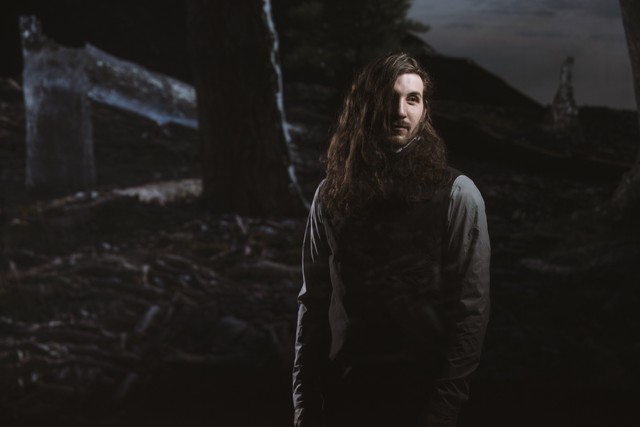Emmy® Award Winner for Outstanding Science and Technology Documentary

Jonathan Kawchuk is a Canadian composer and sound artist. His score for the Emmy® Award-winning film Hunt for the Oldest DNA (2024) won the Canadian Screen Music Award (CASMA) for Best Original Score in a Documentary. He has scored episodes of CBC’s The Nature of Things and PBS's Nova, including True Survivors and Carbon: The Unauthorized Biography. His work spans theatre, film, and sound installations. He has worked on albums for Nico Muhly and Ben Frost, and has studied field recording under Chris Watson. An alumnus of several music residencies, he is a Grammy voting member, recording artist on Paper Bag Records, and the Canadian representative for acoustic conservation non-profit Quiet Parks International.
"When we say we watch a film, we're actually listening just as intently as we're watching. The listening part should be just as multi-layered and informationally dense as the watching part. But that half of the experience happens in your subconscious." – Writer & Director Niobe Thompson.
To create the original music for Hunt for the Oldest DNA, Thompson renewed his long-time collaboration with the Canadian experimental musician and composer Jonathan Kawchuk, who scored his previous two feature documentaries, the transplant science feature Memento Mori (2016) and Carbon – The Unauthorised Biography (2022). “With Hunt for the Oldest DNA,” says Thompson, “I asked Jon for the sounds of a lost world, of evolution, of life itself – it was an enormous brief.”
Kawchuk joined the project early in production, following the evolving story as it was filmed and providing musical explorations – “draft cues” – as it moved into the edit suite. By incredible coincidence, he is also amateur paleontologist who volunteers every summer at excavations in layers that date to the KT Boundary – the moment 64 million years ago that an asteroid struck Earth and triggered the extinction of the dinosaurs - in the Alberta Badlands. Kawchuk was naturally delighted to explore the sounds of distant geological epochs and their strange creatures.
He began building a bespoke sample library for the project, bowing tuned wood plates (an instrument called a Daxophone), creating wind instruments from dried bull kelp, collecting the invented “best guess” sounds of mastodons and other extinct animals, and working with his network of solo vocalists and strings players (performing in their bedroom studios across Canada). By summer 2023, when Kawchuk began formally composing what would become over 83 minutes of film music, he was already drawing on an impressive catalogue of samples and themes.
Working from his base in the remote British Columbia mountain town of Nelson, Kawchuk gathered a team of arrangers, assistants and sample musicians to compose his score over three months. At the end of October, they gathered at one of Canada’s premiere recording spaces – Bryan Adams’ Warehouse Studios in Vancouver – for four days of sessions with the Vancouver Film Orchestra, a brass quartet, and soloists ranging from flute to harp to operatic voice. Most of the tracks passed through the Rupert Neve-designed console that George Martin used to record the Beatles’ first multitrack albums, now housed at the Warehouse.
“I’m always nervous asking a composer to find ‘the sound of curiosity’ or ‘the ecstasy of a scientific breakthrough’… but Jon’s not bothered. He’s like, ‘we’ll just bring some aspirated flute, a harp, some brappy tubas, and a Georgian choir, and it’ll be great.’ Most times, he’s right!” - Niobe Thompson.
FULL SOUNDTRACK
